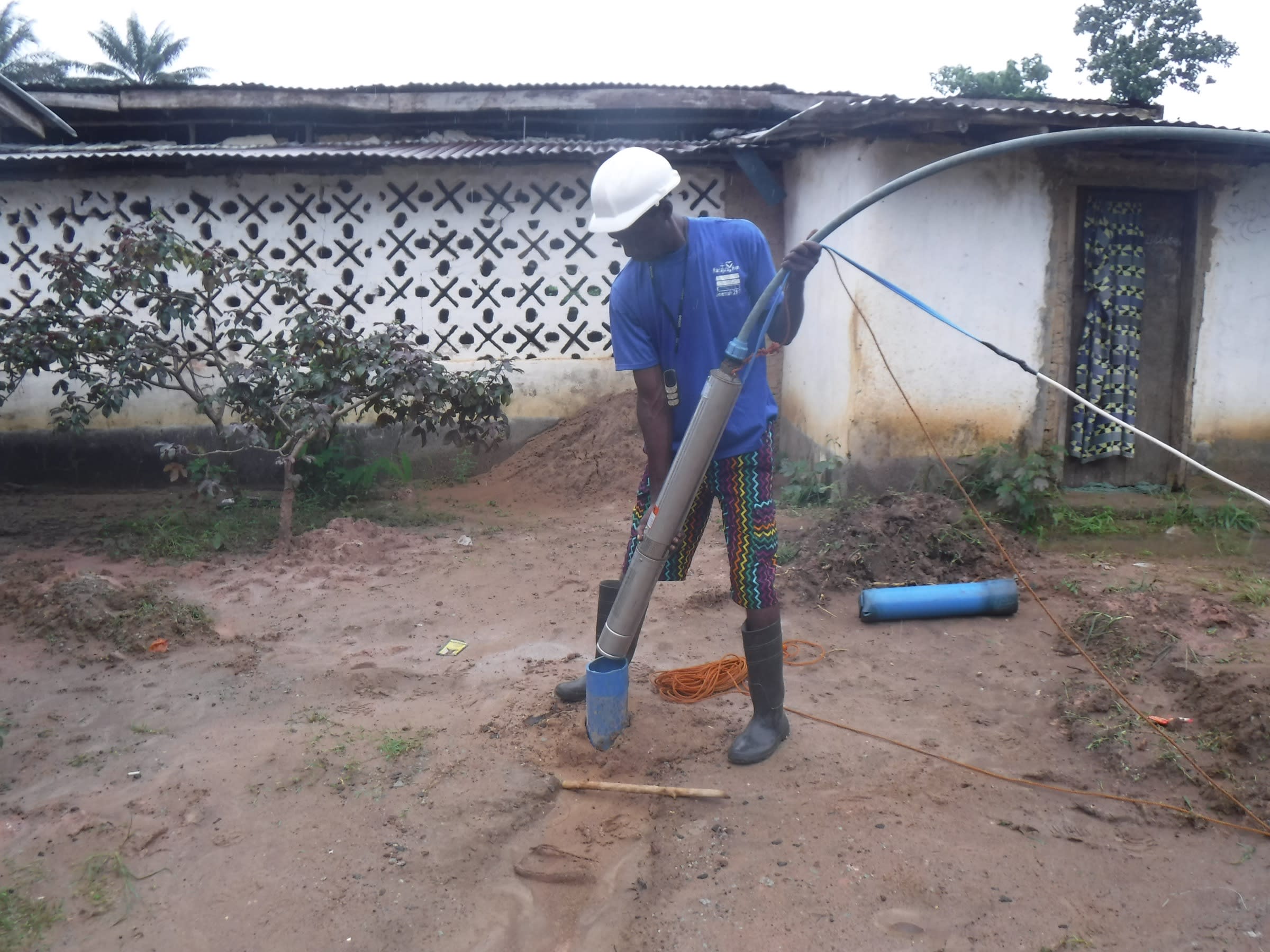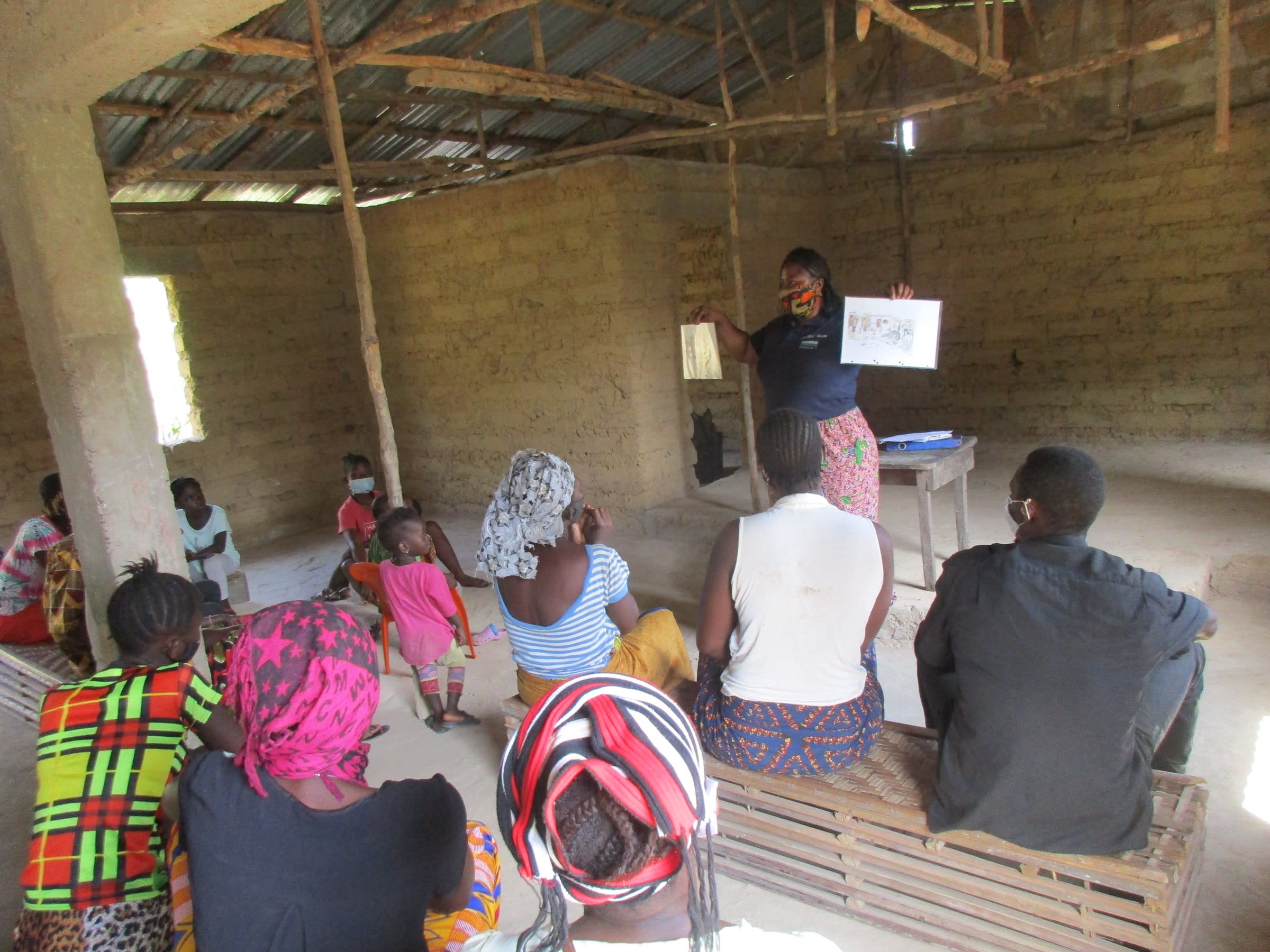Borope was once a sleepy village, but today it is the main center of the Kamasondo Chiefdom. The once-dark village with no battery-operated lights is now a village filled with loud music and generators. The area was initially transformed by the boom of the mining sector. Previously vegetated, the community has had all of its large trees chopped down in the name of development. The mango trees are the only ones remaining to provide fruit and some shade to the community. The benefits of mining here were short-lived, however, and all the employment and development came to an abrupt end when the industry gave out.
Today, the most common way of making a living here is petty trading, gardening, farming, and raising livestock. The open market held on Thursdays, called a Luma, has helped a lot of people sell their produce and food items without having to travel great distances. The market has increased the number of people in the village thus increasing the need for water.
Despite these gains, the people living near Raka Road do not have a nearby source of water. They must travel across the busy Port Loko Highway to get water each day. The children who are sent to get the water are faced with the dangers of crossing the main highway with heavy containers on their heads. They sometimes have to wait for quite a long time to find a break between the speeding vehicles, causing undue stress for the young and old alike.
"I worry about the constant crossing along the busy road of small children to fetch water at the only available water point. The limited access to clean and safe water not only increases the chances of disease transmission but also increases the risk of children being hit by a motor car or being bitten by a snake while going to the stream or swamp. Most people have resorted to bathing and doing laundry at the stream to decrease the wasting of badly needed water from the water well," said the village Headman Dauda Sesay.
The main well is also located near the market which makes it convenient and prone to over-crowding. People complain of waiting a long time to fetch water on market days.
A new well in the community is going to provide water for all the people that live across the highway. The proposed borehole is going to ensure that the people are going to have clean and safe water all year round.
Our team will drive over the LS200 mud rotary drill rig and set up camp for a couple of nights. Once the well is drilled to a sufficient water column, it will be cased, developed, and then tested. If these tests are positive, our mechanics will install a new India Mark II pump.
This community has been pushed to open contaminated well for their water. By drilling this borehole, Tholmossor Community will be provided with plenty of accessible clean drinking water.
The current state of hygiene and sanitation is very poor in the community. Half the homes are without latrines and the community is a step away from a major disease outbreak, reported our team. To address this problem, there will be hygiene and sanitation training sessions offered for three days in a row.
Community members will learn how to make a hands-free handwashing station called the "tippy-tap." We will use these tippy taps for handwashing demonstrations and will also teach about other tools like dish racks and the importance of properly penning in animals. We will highlight the need to keep restrooms clean, among many other topics.
This training will also strengthen a water user committee that will manage and maintain this new well. They will enforce proper behavior and report to us whenever they need our help in solving a serious problem, like a pump breakdown.

 Borehole Well and Hand Pump
Borehole Well and Hand Pump
 Rehabilitation Project
Rehabilitation Project






























 "Now we are happy because this well has helped [us], the students of this community, a lot because we now go to school on time, [and have] less sickness related to waterborne diseases like cholera and diarrhea," said Memunatu.
"Now we are happy because this well has helped [us], the students of this community, a lot because we now go to school on time, [and have] less sickness related to waterborne diseases like cholera and diarrhea," said Memunatu.